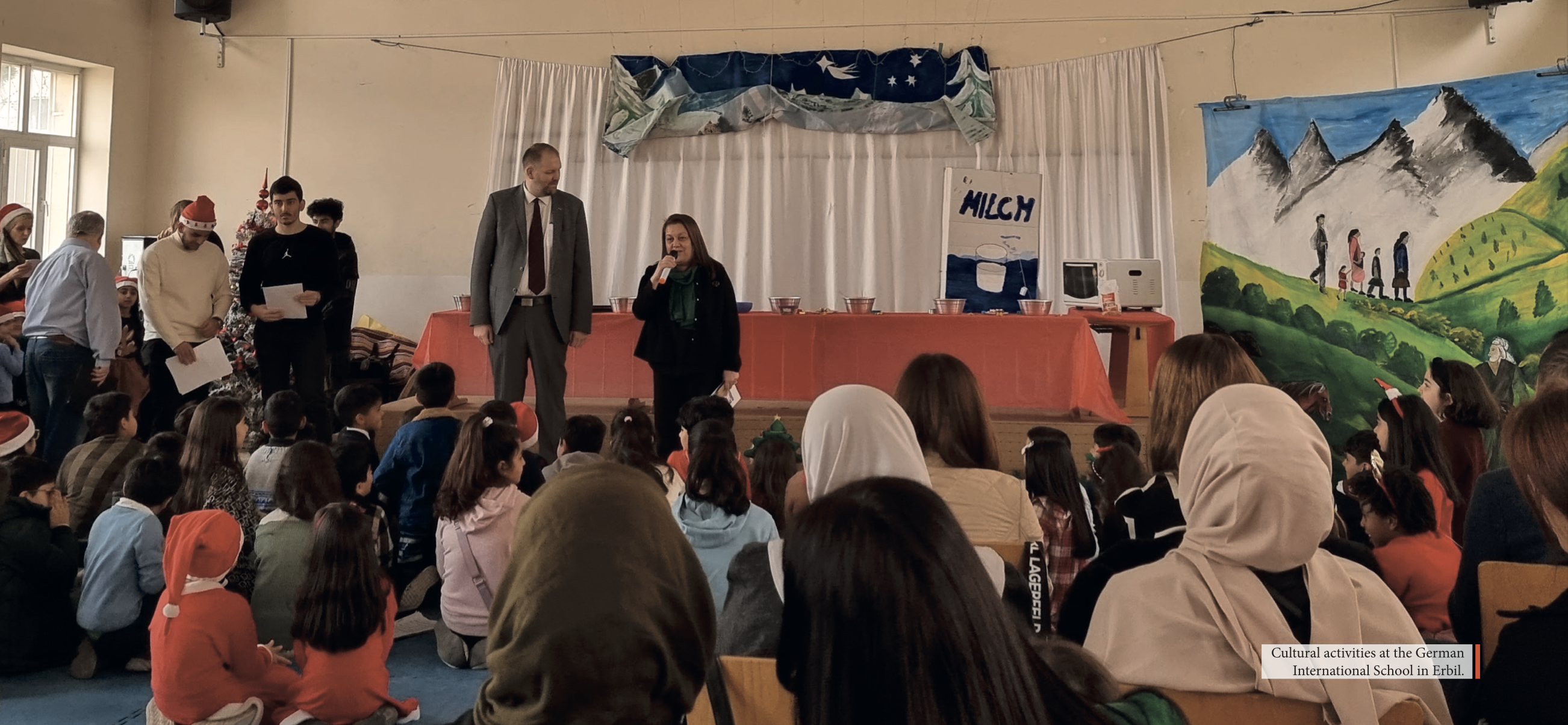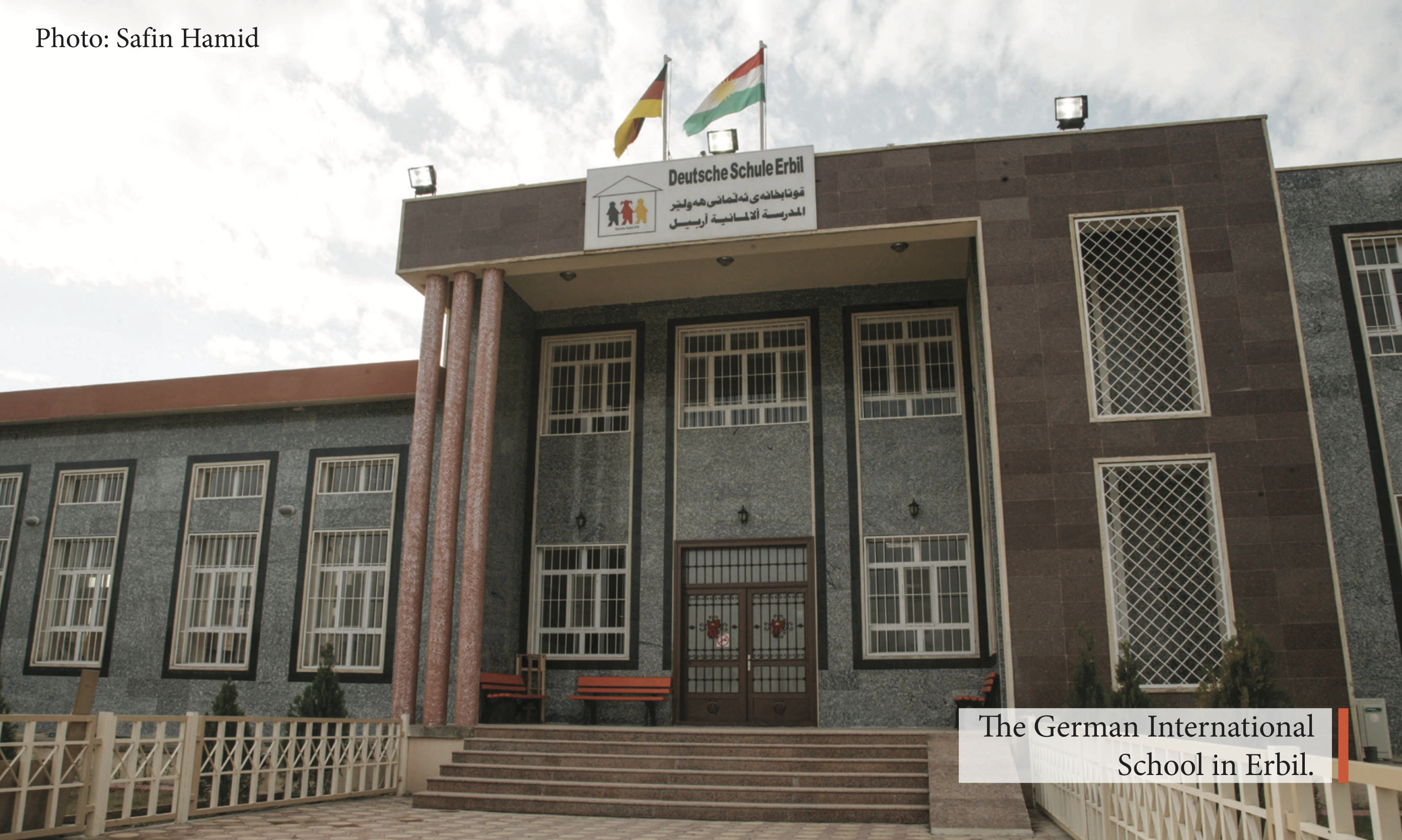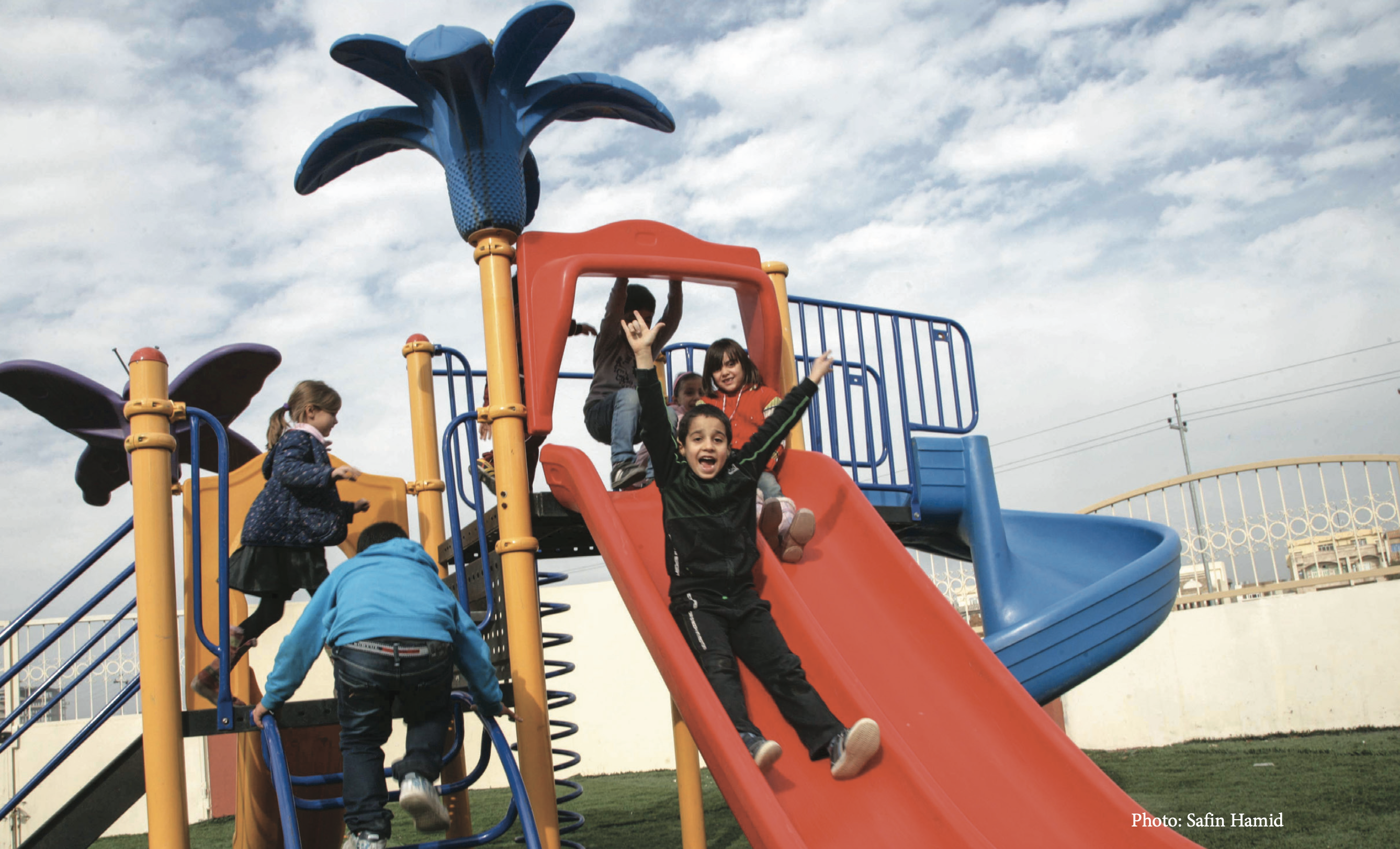The German International School in Erbil has a unique population of Kurdish students, with the majority of them having a German nationality. The school, which has been operating since 2010, has also attracted local Kurdish families who want their children to receive a high-quality German education.
The school follows the official German school curriculum and is financially supported by the German government and recognized by the Kurdistan Regional Government’s Ministry of Education.
Pupils also learn Kurdish and Arabic, and the school offers both elementary and secondary education. Students graduating with an International Baccalaureate (IB) Diploma can study in Germany or elsewhere overseas.

Unique origins
“The school started in 2010. There is a large German-Kurdish community in Germany, and back then, Erbil was thriving economically. After Saddam Hussein was gone, and things started to prosper again, many German Kurds decided to return to Kurdistan,” Daniel Bücker, Principal of the German International School told Kurdistan Chronicle.
In 2009 a group of people started an association to start a German school, which was swiftly realized. “Germany (the German government) decided relatively quickly that it wanted to support the school, and so it became in 2010 one of the approximately 140 German schools abroad.”
However, what distinguishes it from the others is that it is mostly for German-Kurdish returnees. “It is to some extent unique, as most German schools are for expatriates,” he added, highlighting that the school is for “families who originally came as refugees to Germany and then decided to return to Kurdistan.
Principal Bücker added that although there are German expats living in the Kurdistan Region, it's rare for them to bring their kids to Erbil. As a result, most pupils are German Kurds.
“When you talk to people in Germany, some of them are concerned about the security situation, often wondering if it is okay to live there and not knowing too much about it. They see in the news that Kurdistan is suffering from war and instability or Iraq from instability and so they do not see that the city itself is safe.”

Coming to Erbil
According to Principal Bücker, his decision to teach in Erbil came as a surprise to his parents.
“They were a little bit uncertain about whether it was a good idea,” he said. “My mother actually went through the list of German schools back then and asked: why don't you go to the German school in Sydney, Silicon Valley, or Tenerife?”
However, he told his parents that this was the job that he applied for, and later his parents came to accept it. “My family was at first a bit worried, but I think that worry dissipated relatively quickly, as we were in regular contact, and I told them what life is like here.”
Nevertheless, the school and the Kurdistan Region itself have seen their highs and lows, such as when ISIS threatened the Kurdistan Region in 2014, and some German Kurdish families left.
“A number of families had difficulties staying here [after 2014] because of financial and other problems, so they returned to Germany,” Deputy Principal of the school, Media Samagha, told Kurdistan Chronicle.
German teachers were also temporarily relocated to Germany due to security reasons.
Moreover, after the Kurdish independence referendum in 2017, when Baghdad temporarily put an embargo on the Kurdistan Region, several families also left.
“The students have a choice: they can stay here – this is their home – but they can stay in Germany too,” Samagha added.
“You know, people come and go,” Principal Bucker emphasized. “A lot of people return because they say this is where my family is from or this is where my home is. But we also see people who say okay, it's not what I expected, or it didn't work out with my work.”

Feeling of security
Anglika Bauer Ipek, a teacher at the school, said some families also left when they found “better work in Europe,” all while others were returning to Kurdistan from Germany. “This is the modern nomad story.”
Ipek said that she decided to move to the Kurdistan Region with her Kurdish husband from Turkey to support the region’s developing democracy.
“We decided to build something here and to support this German school in Erbil,” she said. “It was a really good decision to be here and to be a teacher.”
She also added that the Kurdistan Region “is more secure than Baghdad or other places in the world. As a woman, I feel truly secure working here or walking in the park or in the streets. It’s not dangerous to live here.”
The German International School in Erbil has thus provided a unique opportunity for the German-Kurdish community to have access to high-quality German education while living in their homeland.
It has also played a vital role in fostering a sense of belonging for the German-Kurdish community and provided students with the skills and opportunities to succeed both in Kurdistan and abroad.
Wladimir van Wilgenburg is a seasoned reporter and analyst who specializes in Kurdish affairs, and holds a Master's degree in Kurdish studies from Exeter University.

